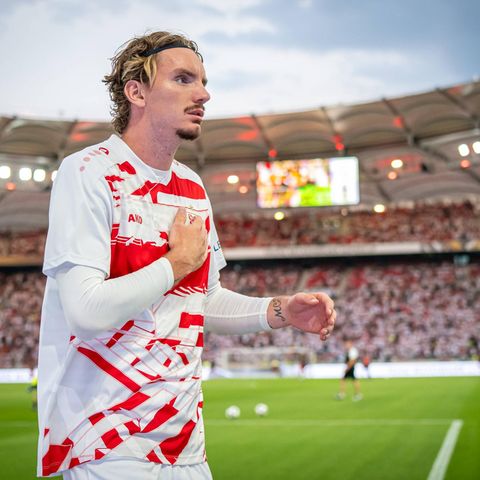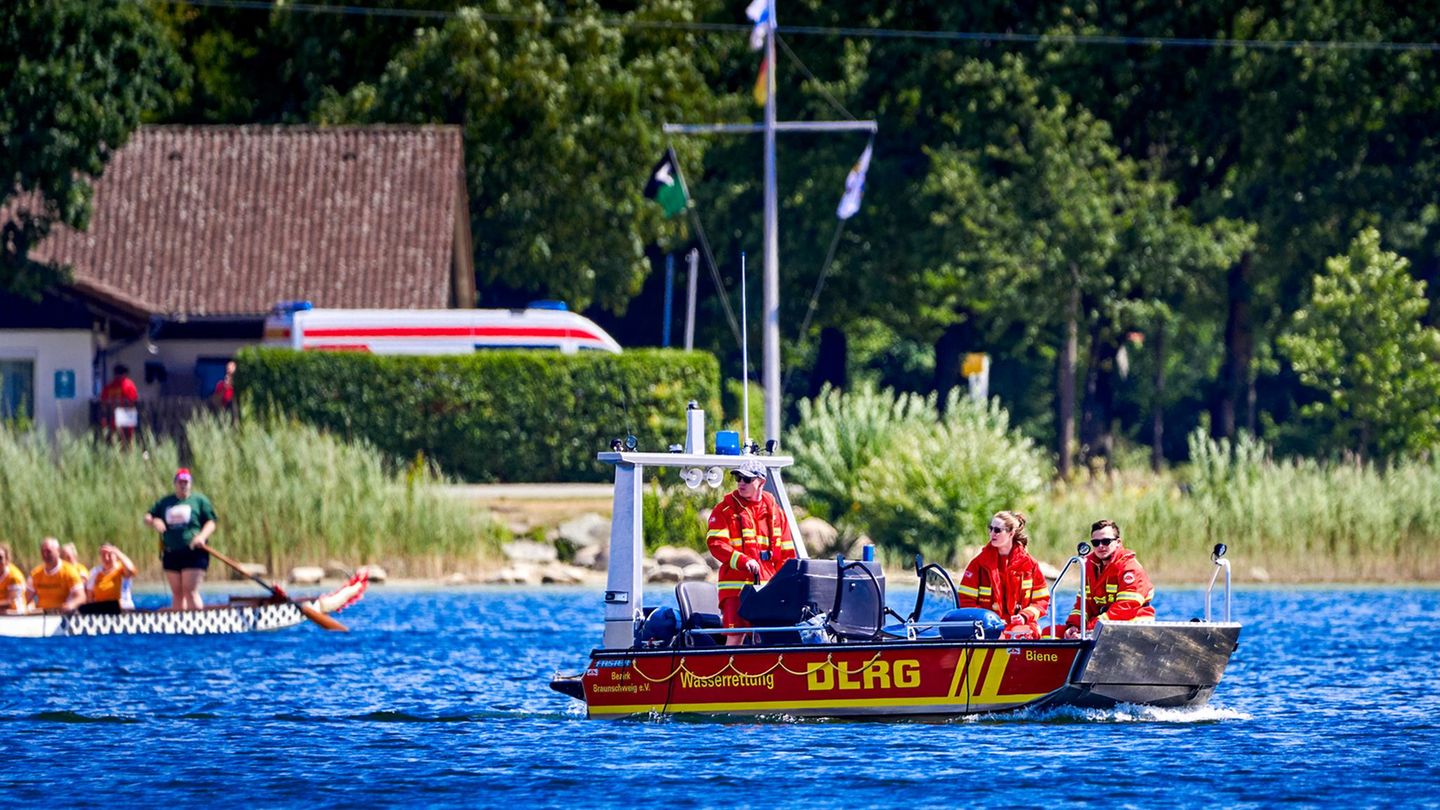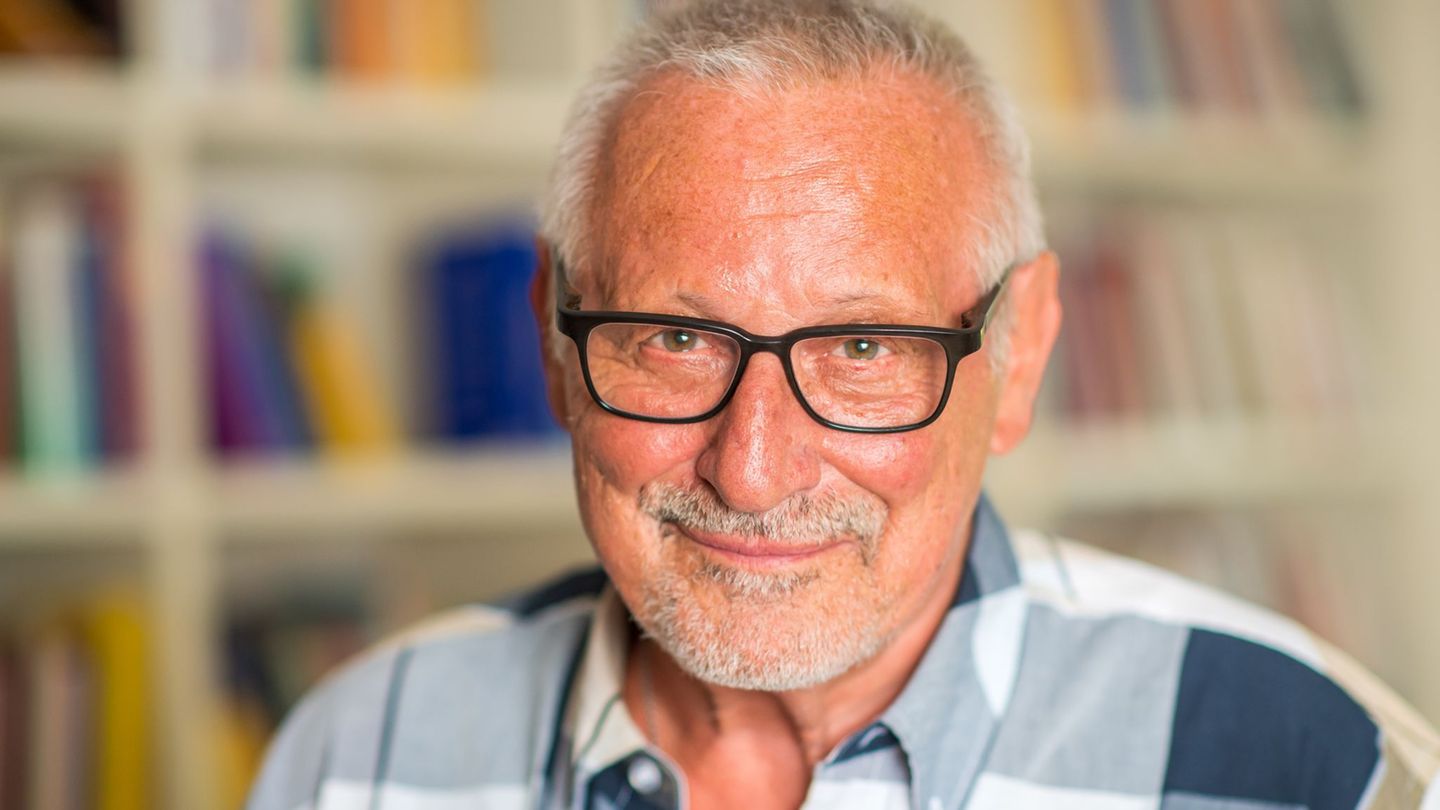Marked by the Russian attack on his country, President Zelenskyj urgently demands support: Ukraine wants to join the European Union. This leaves Brussels in a quandary.
The European Union is open to the accession of Ukraine, which has been attacked by Russia. However, this will be “a long way,” said EU Commission chief Ursula von der Leyen on Tuesday in the European Parliament.
The Ukrainian President Volodymyr Zelenskyy, who was live in front of the MPs and urgently asked for his country’s admission to the EU, initially received above all expressions of solidarity – and additional financial commitments. The EU wants to provide 500 million euros for humanitarian aid and the care of refugees.
Against the background of the heavy fighting with Russia, Zelenskyy had submitted an application to the EU on Monday for “the immediate admission of Ukraine according to a new special procedure”. And almost all speakers in the special session of the EU Parliament on Tuesday showed sympathy for it. They expressed their horror at the Russian attack and admiration for the resistance of the Ukrainians, they made it clear that Ukraine belongs to Europe and that they don’t want to be left hanging. But joining the club of currently 27 states is usually infinitely complicated and lengthy.
This was also indicated by EU Council President Charles Michel. The issue of accession is difficult and there are different views among Member States, Michel said in Parliament. “But the Council will not be able to avoid its responsibility.” At least a serious examination of Selenskyj’s request Michel agreed. One will “work towards the goal”, formulated Parliament Speaker Roberta Metsola. The first question is whether Ukraine can officially become a candidate for accession.
Strict criteria for joining
In principle, according to Article 49 of the EU Treaty, any European state can apply for admission, provided that it respects basic EU values such as democracy and the rule of law. But there are strict requirements even for the start of accession negotiations, such as economic reforms and the rule of law. Five countries are currently queuing, including Serbia, Albania, Montenegro and North Macedonia. Accession negotiations with Turkey have been going nowhere for more than 20 years.
In the case of Ukraine, which has had an association agreement with the EU since 2017, corruption is considered a high hurdle. The EU Court of Auditors found in 2021 that “oligarchs and interest groups continue to undermine the rule of law in Ukraine”. The auditors described corruption in Ukraine as a major problem – despite EU support for judicial reforms, for example.
According to the logic of the EU, it is hardly conceivable that all this will be ignored and that Ukraine will whizz past the other candidate countries. Federal Foreign Minister Annalena Baerbock made this clear. Everyone is aware that “joining the EU is not something you can do in a few months,” said the Greens politician on Monday. At the same time, Baerbock emphasized: “Ukraine is part of the house of Europe.”
The statements by der Leyens and Michels also moved in this field of tension: signaling close ties, but without too specific commitments. The German Commission President said: “Today the EU and Ukraine are more closely linked than ever. But there is still a long way to go.” One must first put an end to the war and talk about the next steps. But: “I am sure that nobody in this plenary hall can doubt that a people who stand so courageously for our European values belong to our European family.”
After all, the European Union is more united internally than it has been for a long time – condemning the Russian attack, supporting the sanctions imposed on Moscow, taking in refugees, financially and morally supporting Ukraine: all of these are issues that are discussed in the EU could be argued for a long time and in small parts and where now almost all political party families are at least converging. Most people in Brussels are also aware of the dramatic break. Or in von der Leyen’s words: “This is the moment of truth for Europe.”
Source: Stern
David William is a talented author who has made a name for himself in the world of writing. He is a professional author who writes on a wide range of topics, from general interest to opinion news. David is currently working as a writer at 24 hours worlds where he brings his unique perspective and in-depth research to his articles, making them both informative and engaging.




